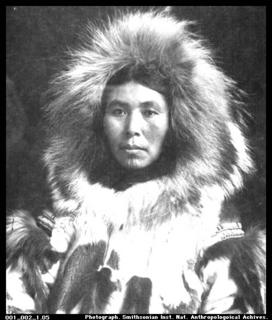 Peter's comment about the Eskimo and the missionary reminded me of an interesting article I read online last week. Adam Jacot de Boinod has just written a book called The Meaning of Tingo. He studied hundreds of dictionaries in different languages, and found that the existence of unique words can actually imply something about the culture. As he puts it, "the culture of a country can be best summed up by its untranslatable words."
Peter's comment about the Eskimo and the missionary reminded me of an interesting article I read online last week. Adam Jacot de Boinod has just written a book called The Meaning of Tingo. He studied hundreds of dictionaries in different languages, and found that the existence of unique words can actually imply something about the culture. As he puts it, "the culture of a country can be best summed up by its untranslatable words."Anyone who has studied another language realizes that some words just can't be properly translated, because a true synonym doesn't exist. Sometimes it's because other languages simply don't need to support that much subtlety. As children, we used to go around impressing each other by boasting about how many words eskimos had for snow. I don't know where we got our information from, but it's probably true. Jacot de Boinod found that Hawaii has 47 separate words for banana. I can understand if there were separate terms for green, ripe and overripe, but I can't imagine needing 47 varieties, because I live in a place where it is not relevant.
Back to the Eskimo. "The Meaning of Tingo" cites the Inuit word "areodjarekput". Google news quotes the book as defining areodjarekput as the practice of exchanging wives for a few days to help pass the time in the long winter nights. A knowledge of the language might have helped the hapless missionary to understand the cultural norms, and be more sensitive in how he went about trying to teach a different way.
Similarly, perhaps missionaries to Bolivia should be aware that they have a word that means "I was rather too drunk last night and it's all their fault"?
I couldn't resist ordering the book. When I get it, I'll tell you if it is as interesting as it sounds.
1 comment:
Yep, this was the entry I was reading.
Yes, please tell me if you find it interesting.
All of this "understanding culture" stuff reminds me of what a Philosophy professor once said about the difference between sociology and philosophy. "In sociology everyone's opinion counts; in philosophy I'm right therefore you must be wrong."
Now, obviously that's a little simplistic, and I think he was being sarcastic as college professor are sometimes want to do, but there is some truth in the statement.
I've been thinking that we as Christians should be more like sociologists, instead of philosophers. Not to the extent that we compromise our values, but so that we honor others around us. By doing so we are stating that we value a person's beliefs and so we make them feel comfortable around us.
Isn't it funny how very comfortable people seemed to be around Jesus, everyone that is except the pharisees. Imagine how successful Jesus' ministry would've been had he taken the approach of so many of our earliest missionaries.
Thanks, again Ann
Post a Comment